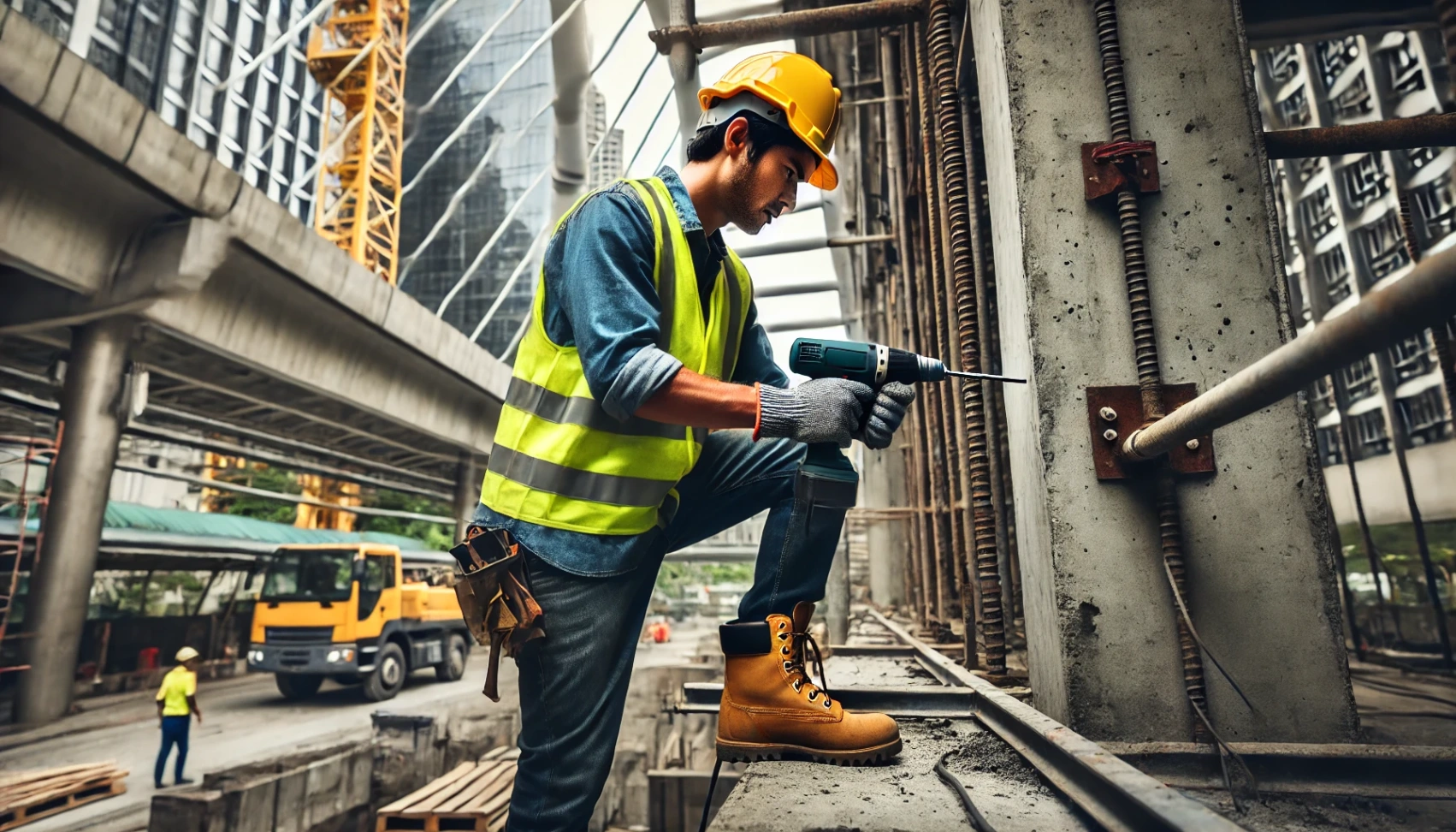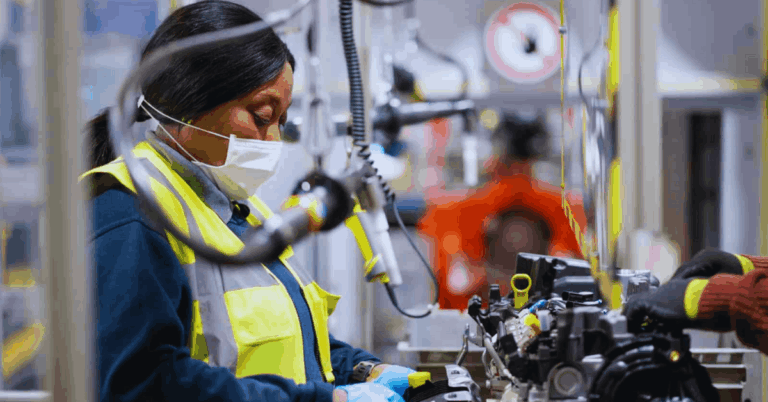Europe’s construction jobs are in high demand, driven by growth in residential, commercial, and infrastructure projects.
Skilled tradespeople, laborers, and engineers can secure stable jobs with competitive salaries and career advancement opportunities.
With labor shortages in many countries, foreign workers also have strong prospects in the construction sector.
Growing Demand for Construction Workers
The demand for construction professionals continues to rise due to infrastructure development, housing shortages, and government-backed projects.
- Urban Expansion – Population growth increases demand for housing and commercial buildings.
- Infrastructure Investment – Roads, bridges, and railways require skilled labor.
- Green Energy Projects – Wind farms, solar energy plants, and sustainable buildings.
- Aging Workforce – Many skilled workers are retiring, creating job openings.
- Post-Pandemic Recovery – Governments investing in economic stimulus projects.
High-Demand Countries:
- Germany – Large-scale housing and infrastructure developments
- United Kingdom – Demand for skilled trades due to labor shortages
- France – Expansion in public transportation and residential buildings
- Netherlands – Growth in commercial and green construction
- Scandinavia – Strong investment in infrastructure and eco-friendly projects

Types of Construction Jobs Available
Construction jobs cater to workers of all skill levels, offering various career paths.
- Skilled Trades – Electricians, plumbers, carpenters, masons, welders, roofers
- Unskilled Roles – General laborers, site assistants, demolition workers, scaffolders
- Technical & Management – Civil engineers, project managers, site supervisors, and surveyors
- Heavy Machinery Operators – Crane operators, excavator drivers, forklift operators
- Sustainable Construction – Specialists in eco-friendly and energy-efficient building practices
- Concrete & Masonry Work – Concrete finishers, formwork specialists, bricklayers, stone masons, and tile setters
- Steel & Structural Work – Ironworkers, steel fixers, metal fabricators, reinforcement specialists
- Road & Infrastructure Construction – Paving workers, asphalt layers, tunnel builders, and bridge constructors
- Finishing & Interior Work – Drywall installers, painters, plasterers, flooring specialists, and insulation workers
- Utility & Underground Work – Pipefitters, water and sewage workers, trench diggers, fiber optic installers
Qualifications and Skills Needed
While some roles require formal education, many jobs are open to those with hands-on experience and vocational training.
- Educational Paths – Trade schools, apprenticeships, on-the-job training, technical degrees
- Technical Skills – Ability to read blueprints, operate tools, work with materials
- Physical Stamina – Strength, endurance, and ability to work in harsh conditions
- Safety Knowledge – Understanding of workplace hazards and protective measures
- Language Proficiency – Basic local language skills improve job prospects and workplace communication
- Problem-Solving Skills – Ability to troubleshoot construction issues and adapt to unexpected challenges
- Teamwork & Communication – Working efficiently with colleagues, supervisors, and clients to complete projects
- Regulatory Compliance – Knowledge of building codes, environmental regulations, and labor laws
Average Salaries and Benefits
Construction wages vary by country, role, and experience level, but salaries are competitive.
Estimated Monthly Salaries:
- Germany – €2,500–€4,500 (varies by role and experience)
- UK – £2,000–£4,000 (higher for specialists like electricians and welders)
- France – €2,000–€3,800 (varies by region and sector)
- Netherlands – €2,200–€4,200 (higher for project managers)
- Scandinavia – €3,000–€5,500 (substantial social benefits included)
Additional Benefits:
- Job Security – Consistent work due to high demand
- Health Insurance – Provided by many employers
- Paid Overtime – Extra wages for extended work hours
- Pension Plans – Contributions towards retirement savings
- Training Programs – Sponsored certifications and skills development
- Housing Assistance – Some employers offer accommodation or housing allowances for workers
- Travel Allowances – Compensation for transportation costs, especially for remote job sites
- Paid Vacation & Holidays – Guaranteed time off, including public holidays and annual leave

How to Find Construction Jobs in Europe
Multiple avenues exist for job seekers, from online platforms to recruitment agencies.
- Online Job Portals – LinkedIn, Indeed, Glassdoor, and industry-specific websites
- Recruitment Agencies – Specialize in placing workers in construction firms
- Networking – Industry connections increase job prospects
- Government Job Programs – Some countries offer work permits and sponsorships
- Union Membership – Access to job postings and worker protections
Challenges and Considerations
While construction jobs offer many benefits, workers must prepare for potential challenges.
- Physical Demands – Long hours, heavy lifting, and exposure to extreme weather
- Job Safety Risks – High-risk environment with potential injuries
- Seasonal Employment – Some projects slow down in winter
- Legal & Visa Issues – Foreign workers must comply with work permit laws
- Workplace Stress – Tight deadlines and high-pressure environments
Work Visa and Immigration Process
Foreign workers must secure legal authorization before working in Europe.
Visa Requirements by Country:
- Germany – Blue Card for skilled professionals
- UK – Skilled Worker Visa for construction trades
- France – Talent Passport for engineers and managers
- Netherlands – Highly Skilled Migrant Visa
Application Process:
- Secure a job offer from an employer willing to sponsor your visa.
- Gather proof of qualifications and work experience.
- Submit a visa application through the embassy or online portal.
- Complete medical checks and background verification.
Career Growth and Advancement Opportunities
Construction offers career progression from labor roles to management positions.
- Certifications for Promotion – Safety training, trade licenses, leadership courses
- Higher-Level Roles – Moving from laborer to foreman, supervisor, or project manager
- Specialization – Learning advanced techniques in plumbing, electrical work, or welding
- Entrepreneurship – Starting a construction business or working as a subcontractor
Safety Regulations and Workplace Standards
European construction sites follow strict regulations to prevent accidents, protect workers, and ensure legal compliance.
Employers and workers must follow these guidelines for a safe work environment. Here are 10 key safety standards:
- Protective Equipment (PPE) – Mandatory use of helmets, gloves, goggles, and high-visibility clothing
- Fall Protection – Safety harnesses, guardrails, and scaffolding standards to prevent falls
- Site Safety Inspections – Regular audits to identify and eliminate hazards
- Emergency Preparedness – First aid stations, fire extinguishers, and evacuation plans are required on-site
- Machine and Equipment Safety – Training and certification required for operating heavy machinery
- Hazardous Material Handling – Proper storage and disposal of chemicals, asbestos, and flammable materials.
- Noise and Air Quality Control – Limits on noise exposure and dust control measures for worker health
- Working Hours and Breaks – Legal limits on shift hours to prevent fatigue-related accidents
- Worker Training and Certification – Mandatory safety training for all employees before starting work
- Legal Worker Rights – Compliance with labor laws, insurance coverage, and accident compensation
Sustainable Construction and Emerging Trends
The industry is shifting towards environmentally friendly and tech-driven solutions.
- Green Building Materials – Recycled materials and energy-efficient insulation
- AI & Automation – Smart technology improves efficiency
- 3D Printing – Faster, cost-effective building solutions
- Modular Construction – Pre-assembled structures reduce waste
Cost of Living and Work-Life Balance
Relocating for a construction job requires understanding the cost of living in different European countries.
Expenses such as rent, food, transportation, and utilities vary based on location and lifestyle. Below are estimated monthly costs in key construction job hubs:
- Germany – €1,500–€3,000
- Higher costs in Berlin, Munich, Frankfurt
- Lower costs in smaller towns and rural areas
- UK – £1,200–£2,500
- London is the most expensive
- More affordable in northern cities and smaller towns
- France – €1,200–€2,800
- Paris has the highest costs
- Lower expenses in Lyon, Marseille, and provincial areas
- Netherlands – €1,500–€3,200
- Amsterdam is costly
- Rotterdam, The Hague, and smaller cities are more affordable
- Scandinavia – €2,000–€4,000
- High living costs in Norway, Sweden, and Denmark
- Higher wages help offset expenses in these countries
The Bottomline
European construction jobs offer stable employment, competitive wages, and career growth in a high-demand industry.
With opportunities across various roles and countries, workers can build a secure future while contributing to significant projects.
Start exploring job openings today and take the first step toward a rewarding construction career.












